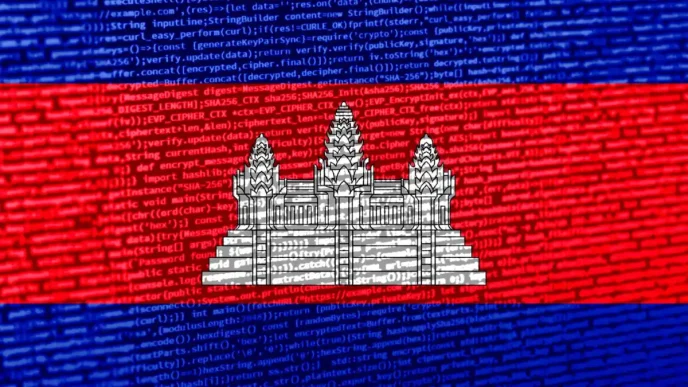A sprawling corruption investigation in Malaysia has taken a dramatic turn, with the Malaysian Anti-Corruption Commission (MACC) now classifying former Prime Minister Datuk Seri Ismail Sabri Yaakob as a suspect rather than a mere witness. At a press conference held at MACC headquarters on 4 March 2025, Chief Commissioner Tan Sri Azam Baki revealed that the agency had uncovered substantial evidence, including millions in cash, gold ingots, and luxury watches, linked to the former leader and his associates. As the probe widens, questions are mounting about the depth of alleged corruption during Ismail Sabri’s tenure and the potential political ramifications in a country long plagued by high-profile graft scandals.
The investigation, which has already led to the seizure of approximately RM170 million in foreign currency and 16kg of gold worth nearly RM7 million from so-called “safe houses,” has sent shockwaves through Malaysia’s political establishment. With 13 bank accounts containing around RM2 million frozen and several senior officials under scrutiny, the case could redefine public trust in governance and accountability.
A Suspect in the Spotlight
Chief Commissioner Azam Baki was unequivocal in his statement at the press conference, confirming Ismail Sabri’s status in the investigation. “In this matter, I can say that he is a suspect in the case,” Azam declared, citing the issuance of a Section 36 notice under the MACC Act for asset declarations. He added that the discovery of substantial sums of money and assets with links to the former prime minister necessitated further statements from him.
Ismail Sabri, who served as Malaysia’s ninth prime minister from August 2021 to November 2022, is expected to be called in for additional questioning as early as Wednesday following the press conference, though this depends on his health condition. Azam emphasized that the focus of the questioning would be on asset declarations and other elements of the ongoing cases. The former leader’s financial dealings, including personal bank accounts, are under intense scrutiny, though accounts linked to Yayasan Keluarga Malaysia, a non-individual entity, have not yet been frozen.
The scale of the seizures is staggering. Raids conducted as part of the investigation uncovered bundles of cash in multiple currencies, including Thai baht, Saudi riyal, British pound, Korean won, euro, Swiss francs, and Chinese yuan. Alongside the cash, luxury watches and gold bars were displayed at the press conference, underscoring the opulence tied to the allegations. According to Azam, forensic and intelligence divisions of the MACC are now tracing the origins of these finances to build a comprehensive picture of the alleged corruption network.
Wider Network Under Investigation
The probe extends beyond Ismail Sabri to include several associates and former officials who served under him. On 21 February 2025, four individuals, including two with the title Datuk, were remanded by the MACC on suspicion of corruption. Additionally, the agency is seeking statements from seven or eight other individuals to advance the investigation. Among those already questioned is Ismail Sabri’s former private secretary, Datuk Nazimah Hashim. Contrary to rumours that she had fled overseas, Azam confirmed that Nazimah remains in Malaysia and has provided her statement to the MACC.
One of the cases under investigation involves government spending of approximately RM700 million on promotional and publicity initiatives, raising concerns about the misuse of public funds during Ismail Sabri’s administration. While details of this specific case remain limited, the sheer scale of the financial discrepancies suggests a systemic issue that could implicate a broader network of officials and private entities.
Political or Professional? MACC Denies Bias
In a country where corruption investigations often carry accusations of political motivation, Azam was quick to address concerns of selective prosecution. “Do you think it is selective? I direct the question back to you,” he challenged reporters at the press conference. “I don’t think so. I always maintain that we investigate professionally and fairly. This is no current instruction from anybody. We act on our own based on information and evidence.”
Malaysia’s history of politically charged corruption cases, such as the 1MDB scandal involving former Prime Minister Najib Razak, has left many citizens sceptical of official narratives. Najib, convicted in 2022 for abuse of power and criminal breach of trust, remains a symbol of the entrenched graft that has long tainted Malaysian politics. Against this backdrop, the MACC’s insistence on impartiality will be tested as the investigation into Ismail Sabri unfolds.
Broader Implications for Malaysian Governance
The timing of this investigation is significant. Malaysia has been striving to rebuild public confidence in its institutions following years of high-profile scandals that have damaged its international reputation and domestic stability. The 1MDB debacle, which saw billions siphoned from a state investment fund, implicated not only political elites but also global financial institutions. While the current case against Ismail Sabri does not yet approach the scale of 1MDB, the allegations of amassed wealth and questionable financial dealings echo a familiar narrative of elite impunity.
If confirmed, the findings could have far-reaching consequences for Ismail Sabri’s political party, the United Malays National Organisation (UMNO), which has struggled to regain public trust since losing power in 2018 for the first time since Malaysia’s independence. UMNO’s return to government in subsequent coalitions, including under Ismail Sabri, was seen by some as a chance for redemption. However, renewed allegations of corruption could further erode the party’s credibility and fuel public demand for systemic reform.
Analysts caution that it is too early to predict the political fallout. “If these allegations are substantiated, they could galvanise opposition movements and intensify calls for stricter anti-corruption measures,” said Dr. Noraini Khalid, a political scientist based in Kuala Lumpur. “But we must also consider the risk of public desensitisation. Malaysians have seen so many scandals that another may simply be met with resignation rather than outrage.” Dr. Noraini’s observation highlights a troubling paradox: while corruption probes are essential for accountability, their frequency risks normalising misconduct in the public eye.
A Test for Malaysia’s Anti-Corruption Framework
The MACC’s handling of this case will be a litmus test for Malaysia’s anti-corruption framework. Under Azam Baki’s leadership, the agency has faced criticism for perceived leniency in some high-profile cases, as well as allegations of internal misconduct. Azam himself was embroiled in controversy in 2021 over unexplained shareholdings, though he was later cleared of wrongdoing. Restoring public faith in the MACC’s independence and rigour will be crucial as it navigates this politically sensitive investigation.
Beyond the MACC, the case raises broader questions about transparency in Malaysian governance. The alleged RM700 million spent on publicity initiatives, if proven to be misappropriated, would underscore the need for stricter oversight of public expenditure. Civil society groups have long advocated for reforms to procurement processes and greater access to information, arguing that opacity enables corruption to flourish. Whether this case will prompt such changes remains uncertain, but it has already reignited debate about the mechanisms needed to hold leaders accountable.
Public Sentiment and the Road Ahead
Public reaction to the investigation has been mixed, reflecting both frustration and cautious hope. On social media platforms like X, many Malaysians have expressed anger over the recurring theme of political corruption, with hashtags such as #MalaysianGraft and #MACCProbe trending in the days following the press conference. Others, however, have urged patience, noting that investigations must follow due process to avoid premature conclusions.
As the MACC continues to trace the origins of the seized assets and gather statements, the spotlight will remain firmly on Ismail Sabri. His responses to the allegations, as well as any evidence he provides regarding his asset declarations, will be critical in shaping the narrative. For now, speculation about the full extent of the corruption network and its potential links to other political figures remains just that—speculation. Until further evidence emerges, the MACC has made clear that its focus is on building a case grounded in facts rather than conjecture.
What is certain is that this investigation marks a pivotal moment for Malaysia. It is a chance to demonstrate that no one, regardless of position, is above the law. Yet it also risks deepening public cynicism if mishandled or perceived as politically motivated. As the case unfolds, the nation watches closely, hoping for answers that might finally pave the way for a more transparent and accountable future.














